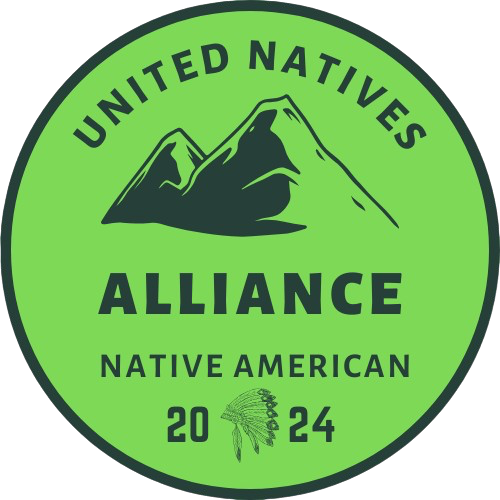Four Storys
Alone we can do so little, together we can do so much.

Wakíŋyaŋ
My name is Wakíŋyaŋ, and my story begins in a small reservation deep in the prairie. I was born there and spent my early years trapped in a life marked by poverty and despair. My family was socially disadvantaged, and alcohol was ever-present. They had little hope and even fewer means to escape the harsh reality that surrounded us all.
From a young age, I was familiar with oppression and poor living conditions. The reservation was a place devoid of opportunities, a place where dreams withered under the relentless sun. My parents fought daily, not against the system, but against themselves. Alcohol was both their comfort and their curse. It stole the few moments of peace and joy we had.
Our hut was more a refuge from the cold than a home. The walls bore witness to stories of violence and despair, tales that burned into my heart. As I grew older, I understood that we lived not only in a physical cage but also in a spiritual one. I felt uprooted, neglected, and without any hope for a better future. The suicides in the reservation are the result of oppression. They are pervasive and our great trauma.
School offered no hope but was merely another institution that reminded us of how little we were worth. The teachers, often frustrated and disillusioned themselves, saw us not as students but as cases. Cases to be managed, not nurtured. I began to believe that education was unattainable for people like me.
Without work and without prospects, I soon fell into the dark circles of alcohol and drugs. It was easy to succumb to the intoxication that offered me the illusion of escape, at least for a short time. But each high ended, and reality hit even harder.
In the midst of this darkness, I clung to a spark of hope. This spark was an old wise chief named Wicasa, who lived in our community. Wicasa had seen and experienced more than I could imagine. Despite his age and the hardships, he had endured, he radiated an inner peace and strength that drew me in.
I began to visit Wicasa regularly, listening to his tales and stories. He spoke of the old times, of the great chiefs, and the spiritual paths of our people. His words gave me courage and a new perspective. He reminded me that our people had survived against all odds because they carried an indestructible strength within.
Wicasa taught me that hope is not something that comes from the outside, but rather arises from within. He helped me understand that despite my seemingly hopeless situation, I had the power to shape my own destiny. Slowly, I began to fight the demons of alcohol and drugs. I knew the road would be long and rocky, but I was ready to walk it.
Today, I am still on this path. My name calls me to reconcile the powers of heaven and earth. There are days when darkness feels overwhelming, but Wicasa’s words are like a light guiding me. I have learned that even in the deepest despair, hope can sprout. And I hope to one day be a beacon of hope for others in my community, just as Wicasa was for me.
Wicasa
My name is Wicasa. I am an old chief who carries the winds of time and the stories of the earth within and feels committed to preserving wisdom. For many moons, I have watched over my people, observed the changing of the seasons, and safeguarded the wisdom of our ancestors. This is my story, a tale of courage, tradition, and the mysteries of life that only the elders know.
I was born in a small reservation, somewhere in the heart of the land that once belonged to our ancestors. The land that was taken from us, the land where my forefathers lived and hunted freely. Even as a child, I felt the constriction of the reservation, the boundaries imposed upon us. The vast plains and majestic mountains my grandparents spoke of were now far away and unreachable. Living conditions in the reservation were harsh, and the oppression from the government was ever-present.
My family lived in a simple house, yet we were rich in culture and tradition. My father told me stories of the old times, of the great herds of buffalo, and the brave warriors who once were our people. My mother sang songs in our ancient language, which we preserved despite all hardships. We spoke Lakota at home, and I learned the wisdom and customs of my people from a young age.

On cool nights, we often sat around the fire, and the elders shared stories of the spirits of the earth, the water, and the sky. They taught us that all life is sacred and that we must live in harmony with nature. I learned to interpret the dreams sent to me by the spirits, understanding that our dreams and visions guide our paths.
However, life in the reservation was often harsh and unjust. We were robbed of our land, and the government repeatedly tried to take away our culture. The schools they built for our children forbade them from speaking our language and practicing our traditions. Many of my friends lost their connection to our people and their identity. But my family stayed together, and we learned to love and preserve our culture.
As time passed, I became a young man and eventually a warrior. I did not fight with weapons, but with knowledge and wisdom. I learned from the elders, from their dreams and stories. I learned the old healing methods and the art of trading and negotiating. The wisdom of the elders helped me lead my people and strengthen them during these difficult times.
As I grew older, my people chose me to be their chief. It was a great honor but also a heavy responsibility. I committed myself to ensuring that our people could preserve their culture and rights. I fought against the injustices we faced and taught the young to take pride in their heritage.
Now, as an old white chief, I look back on my life and see the many challenges we faced. But I also see the pride and strength of my people. Despite oppression and poor living conditions, we never gave up. We learned to love and preserve our culture, and we never lost our dreams and visions.
I know that soon I will find my place among the spirits of my ancestors. But I am proud of the legacy I leave behind. The wisdom and traditions of my people live on in the hearts and souls of future generations. And thus, our story will never end, but will always be carried on, from the old white chiefs to the youngest children born in the reservations.

Aiyana
My name is Aiyana, I am 21 years old, and I belong to the Lakota tribe. Aiyana is a name that holds special significance in our family. It reminds us of the beauty of nature and the joy of life. I grew up in the Pine Ridge Reservation, a place that is synonymous with hopelessness and poverty for many.
Yet for me, it has always been my home, a place full of life, history, and culture despite all the adversities. My father, Chaska, is a mountain guide. He knows the Black Hills like the back of his hand and taught me from a young age to respect nature and understand its secrets. He led tourists through the sacred mountains, sharing stories of our ancestors, their struggles, and their survival. He showed me how to read the stars, understand the rivers, and observe the animals. My father was my first teacher and my greatest hero.
I was fortunate that both of my parents found work, which strengthened our family both financially and morally. My mother, Anpaytoo, is a nurse in the reservation. She has not only learned modern medical techniques but has also preserved the ancient herbs and traditional healing methods of our ancestors. From her, I learned that healing is not just physical, but also spiritual. She taught me the names and properties of the plants that grow in our surroundings and how to turn them into remedies. She showed me how to help people with gentleness and strength.
It was a miracle that both of my parents found jobs. They placed great value on education. They wanted me to understand the world outside the reservation and to have the tools to fight for our rights and our culture. They told me stories of the great chiefs and warriors who came before us, of Sitting Bull, Crazy Horse, and especially Wicasa, the old chief of our tribe. His stories, filled with wisdom and courage, deeply impressed and inspired me.
Wicasa often spoke about the importance of keeping our dreams alive. The dream of one day living freely on our own land, with our traditional values and culture. This dream lives in my parents’ hearts, and they have passed it on to me. They believed that education is the key to realizing our dream.
Now I am at university, far from my home. It was my parents’ dream for me to study here, and I do it for them and for our tribe. Yet, I often feel torn. I see the injustices our people still suffer, the discrimination, and the disregard for our rights. Here at the university, I have started to engage politically. I am part of protests and movements fighting for the rights of Indigenous peoples. Sometimes I am labeled as radical, but I know that I am only standing up for justice and truth.
I raise my voice not just for myself but for all those who came before me and those who will come after me. I want our culture, our language, and our values to survive and thrive. I dream of a day when we will no longer have to fight but can live in peace and dignity on our land, with our traditions.
I am Aiyana, a young Lakota woman, the daughter of Chaska and Anpaytoo, and I will not give up until our dream becomes a reality.
Chayton
My name is Chayton, and I am thirty-six years old. My story begins in a small Native American reservation in the heart of America. My parents were socially neglected, trapped in a cycle of alcohol and unemployment. I grew up in an environment where hopelessness and poverty were ever-present.
When I was still young, I was taken out of that environment and placed with foster parents who treated me like their own son. These loving people gave me the opportunity to attend a boarding school. The boarding school was a world of its own, far removed from what I had known. The other students came from wealthy families, and I didn’t fit in. I was not popular and was often excluded and bullied. They only saw me as the “poor Native American boy” and not the person I truly was.

This experience shaped me, but it also made me more determined. After graduating, I left the boarding school with a clear goal in mind: I wanted to succeed, regardless of the prejudices and challenges in my way. I decided to start my own business.
At first, I ran a small shop, but soon I expanded my empire. I opened a casino and began selling alcohol. These ventures were controversial, but they brought me the financial success I had always dreamed of. Many of my people viewed me critically, but I never lost my love for my roots.
I always advocated for Native Americans to have their own land—land that they could govern themselves and where they could make their own decisions. However, I believed that we should develop according to Western models. In my eyes, the old traditions and customs were outdated and hindered us from moving forward.
I found another path in politics. I fought for the rights of my people and was willing to use controversial means to achieve my goals. The money from my businesses helped me finance political campaigns and gain influence.
Today, I stand at a crossroads. On one hand, I have achieved a lot and have been able to help many people. On the other hand, I know that my path is not without controversy. But I remain determined to fight for a better future for my people—a future where we are strong and independent, free from the burden of the old culture that holds us back.
I am Chayton, a fighter, a businessman, and a visionary. My path may not be the easiest, but it is the one I have chosen to create a better future for my people.





